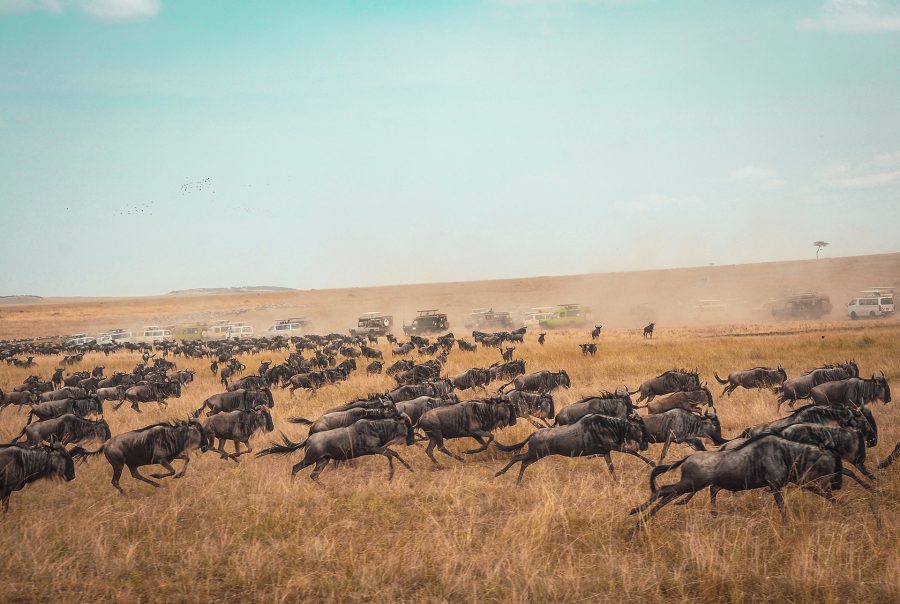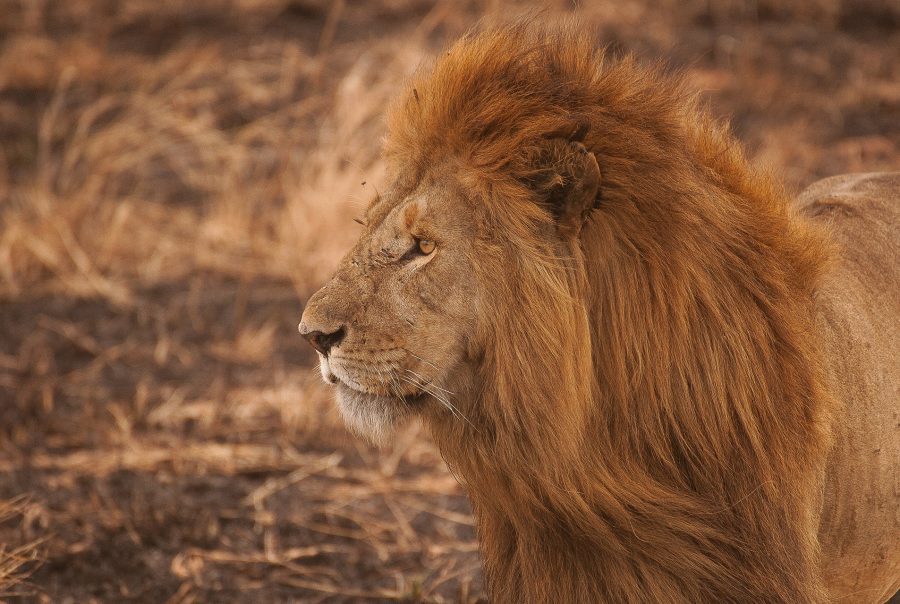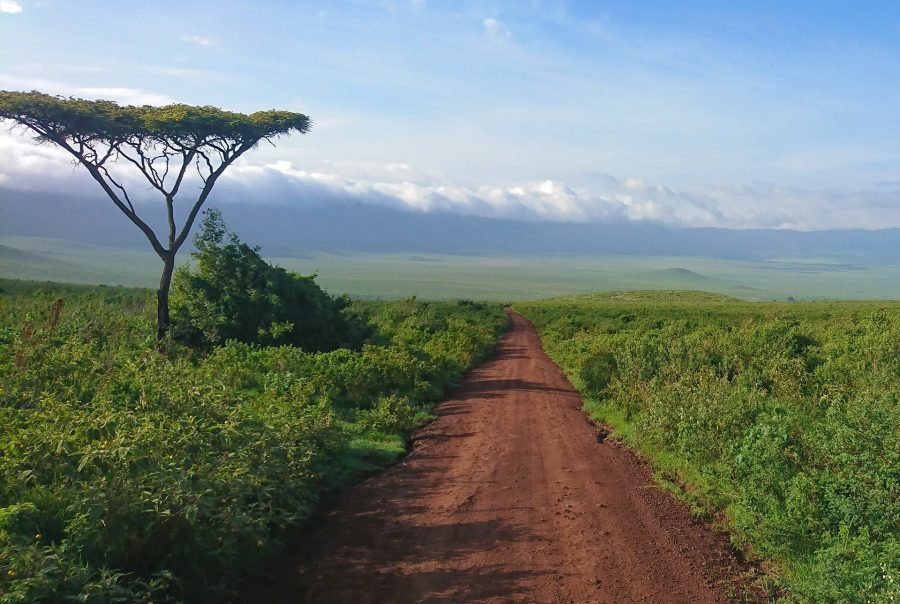The Serengeti National Park: In a country dotted with scenic national parks, it’s the Serengeti National Park that truly stands out. This vast 14 763 km² national park sets the stage for one of nature’s greatest spectacles, the Great Migration. This iconic event follows far-ranging herds of wildebeest as they trace their migrational circuit from the fertile breeding grounds of the southern Serengeti to the mighty Mara River crossing in the north. Tented safari camps located within and on the outskirts of the Serengeti offer exceptional wildlife viewing at all stages of the migration.
The Ngorongoro Crater: Once a massive volcano, the Ngorongoro Crater today is a haven for wildlife and a UNESCO World Heritage Site. Known for its exceptional game-viewing, the world’s largest intact caldera is teeming with animals. Its abundance of lions, elephants (including the iconic big tuskers) and critically endangered black rhinos make the Ngorongoro Crater a popular safari destination.
Tarangire and Lake Manyara national parks: Tanzania’s northern safari circuit is also home to several other national parks, including Tarangire National Park, which is known for its vast herds of elephants, including iconic big tuskers, and ancient baobab trees. Linked to Tarangire National Park by the Kwakuchinja migratory corridor is Lake Manyara National Park — where you can find prides of the region’s renowned tree-climbing lions — which takes its name from Lake Manyara, a vast and shallow body of water that’s home to huge flocks of flamingos during the summer. You’ll also find flamingos at the nearby Lake Burunge.






